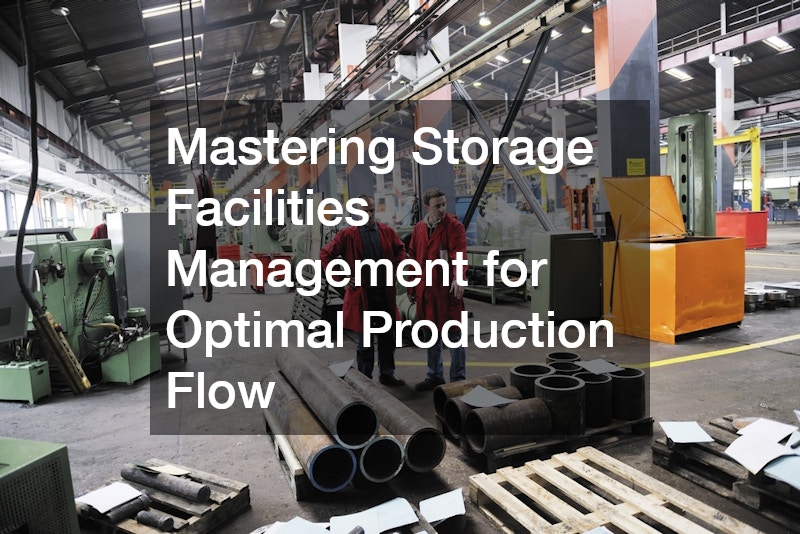In the fast-paced world of manufacturing and distribution, a skilled workforce is paramount to maintaining competitive advantage. As companies continue to adopt advanced manufacturing equipment, it becomes crucial to integrate effective training programs aimed at employee development. This article delves into the myriad ways that targeted training enhances operations across various sectors, including CNC machine shops and PET preform manufacturing.
By understanding how to leverage specialized equipment and develop essential skills, organizations can significantly improve their production and distribution capabilities. Furthermore, the focus on employee training not only enhances productivity but also fosters innovation and adaptability within the workforce. The benefits extend beyond just individual skill sets, influencing overall operational efficiency, safety, and quality control.
Throughout this article, we will explore the importance of training in various facets of production and distribution, specifically addressing the need for skill development in areas like storage facilities, steel shipping containers, and custom metal works. Each section will provide insights and strategies that can be employed to optimize training efforts, ultimately leading to superior outcomes in manufacturing and distribution processes.
Leveraging Advanced Manufacturing Equipment for Enhanced Training
The integration of advanced manufacturing equipment into the production process offers an excellent opportunity for enhanced training programs. Companies can develop specialized curricula that focus on the operation and maintenance of sophisticated machinery, such as CNC machines and automated production lines. By immersing employees in hands-on training with cutting-edge technology, organizations can ensure they are equipped to maximize productivity and efficiency.
Moreover, advanced equipment often comes with built-in training modules that can be beneficial during employee orientation. These modules provide real-time feedback and simulate various production scenarios, allowing workers to gain practical experience before they begin actual production tasks. As a result, employees feel more confident and capable, which directly translates into improved production and distribution outcomes.
Additionally, investment in training tailored to advanced equipment not only enhances individual capabilities but also creates a culture of continuous learning and improvement within the organization. This culture is essential for fostering innovation and competitiveness in today’s manufacturing landscape. Therefore, effectively leveraging advanced manufacturing equipment lays the groundwork for a skilled workforce that can respond adaptively to the dynamic demands of the production and distribution sectors.
How CNC Machine Shops Benefit from Targeted Employee Development

CNC machine shops play a crucial role in the manufacturing sector, producing intricate parts and components for various industries. Targeted employee development programs within these shops can lead to significant improvements in production efficiency and quality. By focusing on skill enhancement tailored to CNC operations, workforce training translates into more precise manufacturing processes and less waste.
Moreover, CNC operators equipped with advanced programming and machine setup knowledge can troubleshoot issues on the fly, reducing downtime during production. This not only helps in maintaining the flow of production and distribution but also improves the overall reliability of the operation. Understanding the nuances of CNC machine capabilities leads to innovations in production methods, providing a competitive edge in a diverse marketplace.
Investing in the training of CNC machine operators ultimately serves to create a more agile workforce capable of adapting to evolving technological trends in manufacturing equipment. As demand for custom work increases, the ability to efficiently train employees on the latest machinery becomes vital for long-term sustainability and growth. CNC machine shops that prioritize targeted employee development will find themselves ahead in the competitive landscape of manufacturing and distribution.
Training Your Team to Handle Specialized Equipment in Production Lines

Specialized equipment is a vital component of any production line and requires thorough training to operate effectively. From assembly machinery to testing equipment, each piece of machinery has unique requirements that employees must master. Therefore, developing comprehensive training protocols for handling specialized equipment ensures that all team members understand their role in the production and distribution processes.
Hands-on training sessions, supplemented by instructional materials and safety protocols, can prevent accidents and malfunctions caused by improper handling. Companies must adopt a proactive approach to training, continually updating curricula to include new technologies and techniques relevant to the production line. This commitment to continuous improvement empowers employees with knowledge and skills, contributing to smoother operations and enhanced production and distribution tasks.
Additionally, a workforce trained on specialized equipment tends to be more engaged and motivated, as they feel more competent in their roles. This empowerment leads to increased morale and productivity, fostering a sense of ownership in the production and distribution processes. Investing time and resources into specialized training can yield significant returns in efficiency and operational excellence across all aspects of manufacturing.
Improving Efficiency in PET Preform Manufacturing Through Skills Development
The PET preform manufacturing industry is rapidly evolving, and with it, the demand for skilled workers proficient in modern techniques is surging. Skills development initiatives focused on areas such as machine operation, quality assurance, and production optimization can substantially improve efficiency. By training employees specifically for the processes involved in becoming a proficient PET preform manufacturer, companies can streamline operations and reduce cycle times.
Furthermore, focusing on skills development in PET manufacturing can help ensure that workers are aware of the latest industry standards and practices. This alignment not only enhances product quality but also assures compliance with regulatory requirements, ultimately reducing risks related to production and distribution mistakes. Through strategic training, manufacturers not only build a competent workforce but also enhance their product offerings in a competitive marketplace.
Lastly, improved efficiency as a result of skills development can lead directly to increased production capacity in PET preform manufacturing. As a company’s efficiency improves, it can produce more while utilizing the same resources, effectively optimizing costs. Enhanced capabilities create opportunities for expansion and market capture, paving the way for long-term growth in production and distribution channels.
Mastering Storage Facilities Management for Optimal Production Flow

Effective management of storage facilities is fundamental to ensuring that production flow remains uninterrupted. With the right training programs, warehouse and inventory personnel can learn to implement best practices in stock management and retrieval methods. This training ultimately minimizes delays in production and distribution caused by inadequate inventory handling.
The complexity of modern supply chains necessitates a well-organized storage system that can adapt to changing demands. Consequently, training staff to use inventory management systems and understand logistics can greatly enhance efficiency. A well-trained team in storage facilities ensures that products are readily available for distribution, aiding in meeting customer demands without unnecessary delays.
Moreover, efficient storage facility management practices reduce waste and improve space utilization, further contributing to overall operational efficiency. Training in areas such as load optimization, tracking systems, and warehouse layout design can lead to significant cost savings. Therefore, mastering storage facilities management is crucial for companies aiming to refine their production and distribution effectiveness.
Training for Effective Handling and Use of Steel Shipping Containers
Steel shipping containers are significant assets in the transportation of goods within and beyond production facilities. Training employees on the proper handling and use of these containers is essential in preventing injuries and ensuring safe transport during production and distribution cycles. An organized training program can minimize the risks associated with manual handling and maximize efficiency in loading and unloading processes.
Additionally, understanding the specifics of steel shipping containers, such as weight limits and securing mechanisms, plays an important role in maintaining the integrity of the goods being transported. Employees well-versed in these aspects can enhance the reliability of shipping and receiving processes, directly impacting the company’s distribution efficiency. Furthermore, staff trained in the effective use of containers can develop strategies that improve space utilization during transit.
Investing in the right training for handling steel shipping containers not only elevates employee confidence but also reduces operational downtime linked to mishaps. As the shipping landscape becomes more competitive, companies must prioritize employee training to uphold high standards of safety and efficiency. Comprehensive training programs also inspire a commitment to excellence among employees, leading to better outcomes in the overall production and distribution network.
Building Expertise in Freight Solutions for Seamless Distribution Operations

Expertise in freight solutions is crucial for any business striving for efficiency in its distribution operations. Training staff on logistics, carrier negotiations, and route optimization can drastically reduce costs associated with freight transportation. This knowledge not only empowers employees to make informed decisions but also directly impacts production and distribution timeliness.
By implementing strategic training programs focused on building freight expertise, organizations can develop a more responsive distribution network. Employees armed with this knowledge can quickly identify the best freight solutions tailored to specific needs, improving overall service levels. An efficient distribution operation reflects positively on a company’s brand and increases customer satisfaction, driving further business growth.
In conclusion, fostering expertise in freight solutions encourages a proactive approach to solving logistical challenges that may arise in any production and distribution scenario. Organizations equipped with knowledgeable staff can navigate complexities with agility, ensuring products arrive on time and in excellent condition. Therefore, a commitment to training in freight solutions is an investment into the longevity and sustainability of distribution operations.
Optimizing Pallet Management: Training for Better Inventory Control
Effective pallet management is integral to maintaining order and efficiency in inventory control within production and distribution facilities. Through dedicated training, employees learn essential skills such as loading techniques, inventory tracking, and understanding the diverse types of pallets available. By optimally managing pallet usage, companies can improve workflow and reduce operational costs.
Moreover, misunderstanding pallet specifications or failing to implement best practices can lead to stock discrepancies and increased handling time. Proper training ensures that teams can minimize errors in inventory counts, which is critical for maintaining available stock. Optimized pallet management translates into streamlined operations and efficient production processes, ensuring that all goods are readily prepared for distribution.
Additionally, embracing advanced pallet management techniques can lead to better utilization of space and lower shipping costs, enabling companies to allocate resources more effectively. Training in this area cultivates a knowledgeable workforce that can adapt to changing inventory demands swiftly. By prioritizing pallet management training, businesses can bolster their overall operational efficiency within production and distribution systems.
Developing Precision Skills for Drill Bushing Fabrication in Manufacturing
Drill bushing fabrication is a specialized field within manufacturing that necessitates precision and attention to detail. Developing these skills among employees involves structured training programs focusing on both the theoretical aspects and the practical applications of drill bushing processes. This comprehensive approach ensures that fabricators are adept at producing high-quality components essential for various manufacturing operations.
Accurate drill bushing fabrication directly impacts production efficiency and product quality, making employee training crucial in this regard. Workers trained in advanced techniques can minimize defects and waste, aligning with broader efforts to enhance production and distribution workflows. Furthermore, an emphasis on precision skills fosters a culture of quality assurance among employees, ensuring that all work meets or exceeds industry standards.
Continuous skill development in drill bushing fabrication also prepares the workforce to adapt to emerging technologies in the manufacturing sector. As manufacturing equipment evolves, so too must the skills of the workforce, ensuring that they remain competitive in delivering high-quality results. Investing in precision training not only yields immediate results in production but also fortifies the foundation for sustainable manufacturing practices.
Why Custom Metal Works Require Continuous Workforce Training
Custom metal works are characterized by their complexity and uniqueness, demanding a workforce that is continually updated with the latest skills and techniques. Training programs designed to enhance the specific skills needed for custom fabrication can play a significant role in ensuring that projects are completed to client specifications while adhering to tight deadlines. Rigorous training prepares workers to face custom challenges head-on, fostering creativity and problem-solving capabilities.
Furthermore, continuous workforce training ensures that employees remain proficient in the operation of advanced manufacturing equipment used in custom metal works. As technology advances, the ability to adapt and learn quickly becomes paramount in maintaining quality and efficiency. This level of training promotes confidence among workers, allowing them to take ownership of their tasks and execute their roles effectively.
Ultimately, investing in continual training for custom metal works serves to enhance the reputation of the business in the marketplace. A skilled workforce capable of delivering high-quality custom solutions can help the organization stand out among competitors. Therefore, prioritizing ongoing training programs is essential in driving excellence within the custom metal fabrication landscape.
Boosting Production Through Local Metal Fabrication Service Training
As industries gravitate towards localized manufacturing solutions, the demand for skilled workers in local metal fabrication services is on the rise. Training programs designed specifically for local fabrication services can enhance production capabilities by focusing on relevant skills and knowledge. Such training ensures that workers are equipped to meet the demands of regional markets efficiently.
Furthermore, localized training fosters relationships between metal fabrication businesses and their communities. Employees trained in local metal services are often more attuned to community needs, allowing companies to tailor services and products effectively. This adaptability in production aligns with smoother distribution strategies, ensuring that goods are readily available to meet local demands.
Investment in local metal fabrication service training further serves to streamline production processes. By understanding local material sources and logistical considerations, workers can optimize production timelines and manage distribution effectively. This enhanced local responsiveness ultimately strengthens the business’s overall operational capacity and supports growth within the community.
Essential Skills for Navigating Complex Fabrication Processes
Complex fabrication processes encompass a variety of techniques and require in-depth knowledge across different skill sets. To navigate these complexities efficiently, training is essential for equipping workers with the skills necessary for successful fabrication. Specialization in areas such as welding, machining, and assembly ensures that employees can tackle multifaceted projects adeptly.
Additionally, training focused on problem-solving and critical thinking within fabrication contexts empowers employees to find innovative solutions. Such skills are vital for maintaining efficiency when unexpected challenges arise in production lines. By fostering a culture of continuous improvement through training, businesses can enhance their overall fabrication effectiveness and adaptability.
Ultimately, developing essential skills for navigating complex fabrication processes is a prerequisite for sustaining growth in the manufacturing sector. As processes evolve, so too must the workforce’s training programs, ensuring they remain at the forefront of industry advancements. Consequently, organizations that emphasize skill development will find themselves well-equipped to manage the dynamics of production and distribution seamlessly.
Fostering Innovation in Manufacturing with Training for Custom Equipment Handling
Innovation in manufacturing often hinges on the ability to efficiently handle custom equipment. Therefore, training programs aimed at mastering custom equipment handling are vital for empowering employees to push boundaries in innovation. This expertise allows workers to experiment with new processes, leading to the development of unique products that cater to market demands.
Incorporating training that focuses on custom equipment handling fosters an environment of creativity within manufacturing facilities. Employees become more confident in utilizing specialized tools and machinery, leading to improved problem-solving capabilities. As innovation becomes embedded in the workforce culture, it directly contributes to enhanced production and distribution strategies, setting companies apart in competitive markets.
Moreover, a well-trained workforce in custom equipment encourages collaboration across departments, as different teams work together to refine processes and products. This cross-functional training strengthens overall operational dynamics, ensuring that a company can respond promptly to emerging trends. Ultimately, investing in training for custom equipment handling not only drives innovation but also fortifies the company’s position in the manufacturing and distribution sectors.
The landscape of manufacturing and distribution is continuously evolving, driven by advancements in technology and changes in market demands. By investing in comprehensive training programs that focus on essential skills and effective utilization of advanced manufacturing equipment, companies can cultivate a skilled workforce ready to tackle the challenges of tomorrow. Such strategic training initiatives not only enhance productivity but also foster a culture of innovation capable of responding to the dynamic nature of the industry.
From CNC machine shops to local metal fabrication services, the benefits of targeted employee development are clear. As organizations increasingly appreciate the importance of a skilled workforce, the focus on continuous training will inevitably yield dividends in terms of operational efficiency and customer satisfaction in production and distribution processes. By remaining committed to skill enhancement at every level of production, companies can pave the way for sustained growth and success in an ever-competitive environment.



